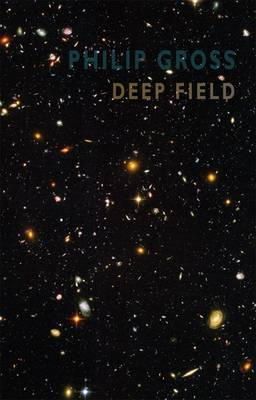14%OFF

Stock image for illustration purposes only - book cover, edition or condition may vary.
Deep Field
Philip Gross
€ 11.99
€ 10.37
FREE Delivery in Ireland
Description for Deep Field
Paperback. New collection by Philip Gross, winner of the TS Eliot Prize 2009 for his previous book The Water Table. Num Pages: 64 pages. BIC Classification: DCF. Category: (G) General (US: Trade). Dimension: 214 x 140 x 6. Weight in Grams: 110. 64 pages. New collection by Philip Gross, winner of the TS Eliot Prize 2009 for his previous book The Water Table. Cateogry: (G) General (US: Trade). BIC Classification: DCF. Dimension: 214 x 140 x 6. Weight: 110.
In his nineties Philip Gross's father, a wartime refugee, began to lose his several languages, first to deafness, then profound aphasia. Deeply thought as well as deeply felt, these poems reach into that gulf to find him - through recovery of histories both spoken and unspoken as well as an excavation of the spoken word itself. Readers who admired Philip Gross's subtlety and range in his T.S. Eliot Prize-winning collection The Water Table will find those qualities brought to a new human urgency in the compelling sequences of Deep Field.
In his nineties Philip Gross's father, a wartime refugee, began to lose his several languages, first to deafness, then profound aphasia. Deeply thought as well as deeply felt, these poems reach into that gulf to find him - through recovery of histories both spoken and unspoken as well as an excavation of the spoken word itself. Readers who admired Philip Gross's subtlety and range in his T.S. Eliot Prize-winning collection The Water Table will find those qualities brought to a new human urgency in the compelling sequences of Deep Field.
Product Details
Publisher
Bloodaxe Books Ltd
Number of pages
64
Format
Paperback
Publication date
2011
Condition
New
Number of Pages
64
Place of Publication
Tyne and Wear, United Kingdom
ISBN
9781852249199
SKU
V9781852249199
Shipping Time
Usually ships in 5 to 9 working days
Ref
99-59
About Philip Gross
Born in Cornwall, son of an Estonian wartime refugee, Philip Gross has lived in Plymouth, Bristol and South Wales, where he was Professor of Creative Writing at Glamorgan University (USW). His 26th collection, Between the Islands (2020), follows ten previous books with Bloodaxe, including A Bright Acoustic (2017), Love Songs of Carbon (2015), winner of the Roland Mathias Poetry Award and a Poetry Book Society Recommendation; Deep Field (2011), a Poetry Book Society Recommendation; The Water Table (2009), winner of the T.S. Eliot Prize; and Changes of Address: Poems 1980-1998 (2001), his selection from earlier books including The Ice Factory, Cat’s Whisker, The Son of the Duke of Nowhere, I.D. and The Wasting Game. Since The Air Mines of Mistila (with Sylvia Kantaris, Bloodaxe Books, 2020), he has been a keen collaborator, most recently with artist Valerie Coffin Price on A Fold in the River (2015) and with poet Lesley Saunders on A Part of the Main (2018). I Spy Pinhole Eye (Cinnamon Press, 2009), with photographer Simon Denison, won the Wales Book of the Year Award 2010. He received a Cholmondeley Award in 2017. Philip Gross's poetry for young people includes Manifold Manor, The All-Nite Café (winner of the Signal Award 1994), Off Road to Everywhere (winner of the CLPE Award 2011) and the poetry-science collection Dark Sky Park.
Reviews for Deep Field
'A book of great clarity and concentration, continually themed but always lively and alert in its use of language. Gross takes us from Great Flood to subtly invoked concerns for our watery planet; this is a mature and determined book, dream-like in places, but dealing ultimately with real questions of human existence' - Simon Armitage, T.S. Eliot Prize judges' comment. 'Great poetry is like walking on water. In this paradoxical, humane collection, Philip Gross achieves that miracle' - Polly Clark, Guardian. 'Haunting, vividly imagined poems, whose fierce intelligence is gentled by the sonorous grace of the language - A considerable poetic talent offers us an elegant and subtle re-evaluation of the modern world' - Sarah Crown, The Guardian.
